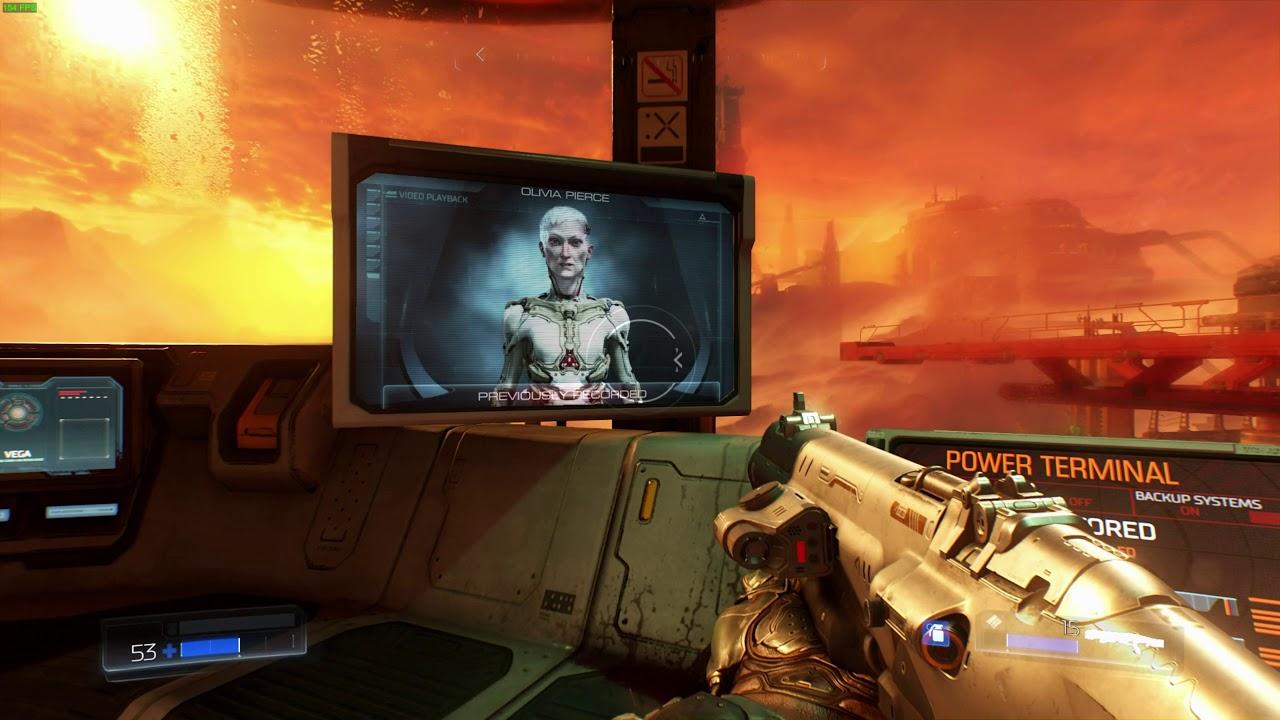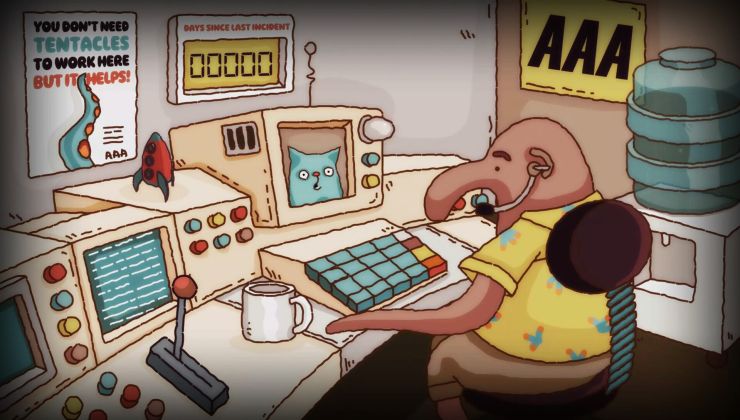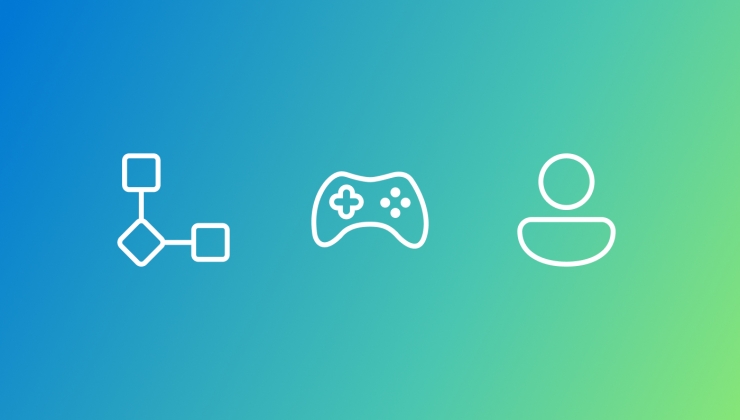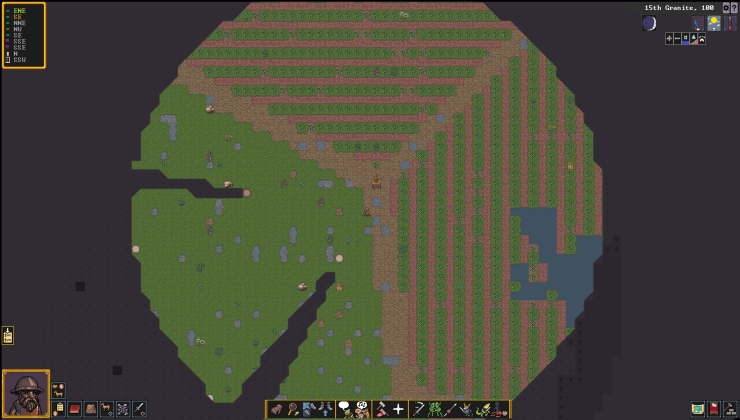With the dust settling on the absolute bomb that Valve dropped with the new Steam Play feature, I’ve had a little time now to think about the broader implications. It’s obviously a lot to process and these are just my own personal thoughts.
In the short time Proton has been live, the Linux gaming community has come together in a way that I've not seen in all the years I've been doing this. Looking at the GitHub page for Proton, there's already masses of people submitting issues, mentioning games that work perfectly to add to Valve's whitelist of games, people submitting code to help the project along and so on. There's also a massive document on Google Docs, with people submitting their findings on how games run. Seems like it's off to a rather good start!

Direct Link
One of the major worries I had initially, which I’ve seen others share, is that this could mean the end of native Linux ports. However, I have a different take on it.
When it comes to the long-term viability of Linux gaming, getting 2 or 3 AAA games natively ported a year is simply not sustainable. While I am absolutely appreciative of the effort and a big fan of the porting studios, we needed something else to complement native ports to help push us forward.
To be clear on something, I’m absolutely all for the famous “No Tux, No Bucks” slogan people like to throw around. It’s a brilliant thing that there’s a lot of enthusiastic people out there sticking to their guns, buying only games that support Linux. A small reality check though: for the vast majority of developers you’re basically pissing into the wind due to our market share. Developers aren’t likely to see enough sales to think it’s truly worth the effort.
Thinking that this will completely kill off ports from Aspyr Media, Feral Interactive and other porters is probably thinking too short-term. In my mind, this could actually help them quite a lot when thinking about the bigger picture.
With this Steam Play move, this could be a massive push for more people to actually play their games on Linux, get more people actually install Linux and so on. This could, at least in theory, give native porting houses a much bigger market to sink their teeth into. After all, the biggest problem we face is market share, what happens if this starts to move it upwards? Like with SteamOS though, let’s keep expectations in check—I don’t expect this to instantly move mountains. However, this seems like a long-term plan that’s thinking ahead and if it does result in more people using Linux for gaming, that will benefit the entire platform—not just gamers.
Think about it: what’s the single biggest issue people have when it comes to sticking with Linux for their gaming requirements? The actual games, duh. If this bridges a gap for all the people that claim “if x game worked on Linux, I would be on Linux” this probably will become a game changer. Especially important, is the fact that this doesn’t require time and effort to configure, like any other Steam game (for the whitelisted games at least) it will be click and play. The value of that, should not be underestimated. To give an example of that, see the below video:

Direct Link
It’s especially important for all those games people have on Steam that they would otherwise lose access to when moving to Linux. People shouldn’t have to lose their favourite games! Even if it’s only used as a bridge while people move towards purchasing native titles, it’s still an extremely useful feature.
Valve told us directly, that purchases of Windows games played with Proton on Linux will count as a Linux sale. If you missed the update to the previous article, they said this:
Hey Liam, the normal algorithm is in effect, so if at the end of the two weeks you have more playtime on Linux, it'll be a Linux sale. Proton counts as Linux.
So, with any luck, all the people who were already buying Windows games for Wine (and any users coming over to Linux from Windows) will start doing so from within Steam directly. Now if you pick it up to play in Steam Play and a native Linux port comes later (for those times when a release is delayed) you’ve still been counted for Linux gaming—which is truly awesome!
This may help give Linux gaming a more positive outlook in the eyes of developers looking at their sales statistics. That’s quite a big point to reflect on. This might give developers who otherwise ignored Linux some incentive and a push to actually support the platform. If they suddenly start seeing a ton of people buying on Linux, it might start some interesting conversations about actually supporting it officially. Those types of conversations end up creating waves through the entire industry, I've already seen a lot of developers quite excited and hopeful about it all, so it's already making a positive impact on some.
There’s other points to think about too. Linux GPU Drivers and the Vulkan API will be given a much larger testing pool. I imagine this benefiting them greatly. Valve said it themselves in their announcement, that they recommend that developers target Vulkan (as well as telling developers to avoid invasive third-party DRM middleware), so this could be a good way to push Vulkan which is better for all of us since it’s an open API.
However, Valve’s Proton can only do so much for performance and getting a game to work in the first place. What about bugs in the game itself they literally cannot code around to get it working on Linux? What about the masses of online-only games, that have various forms of anti-cheat that Proton/Wine simply cannot handle?
There’s a large number of games that only half work or simply don’t work at all. What about when your favourite game gets an update, which breaks it with Proton? There’s likely many cases that I’m probably not even thinking of, where Valve’s solution simply wouldn’t work or would give a subpar experience.
This is where native ports will still be king. You know what you’re buying will work on Linux and it will give you official support from the developer. When it gets updated, you know it’s still going to work because that’s literally their job to ensure it does. That’s likely the major reason why native ports won’t, or rather shouldn’t, dry up. Valve have to attempt to support a massive, ever-increasing library of Windows-only games and so their resources are going to be spread pretty thin on this. Not to mention that there’s always a chance that Valve could decide to pull back on support in a year or two if they decide it’s not working well enough.
Compare that with a developer putting out a Linux version; obviously they have a much smaller (and likely easier) bit of code to focus on. I would still expect the experience to be superior with a native port, since it’s tweaked specifically for Linux and it’s likely gone through some proper QA. When it comes to games that do require anti-cheat that doesn't (and might never) work with Proton, this could end up being a rather lucrative selection of games for game porters.
Like what happens when any new tech comes out, porting companies will need to adapt to survive. I hope they do, I want them to. The more options we have, the better it is for everyone.
I mentioned drivers briefly earlier. Well, how many times do you think driver issues have held up a Linux port? From what I know, quite often. If we do indeed get better drivers as a result of this, it might also create fewer issues for developers when it comes to doing native ports. We know that some driver developers have been specifically fixing issues with games in Wine, so it sounds like it's been someting ongoing for some time now.
I did speak to Feral Interactive, who told me “Our plans for our future Linux projects haven't changed.”. So we should be able to look forward to continued native Linux ports, including their currently announced Linux ports for Life is Strange: Before the Storm and Total War: WARHAMMER II. I also reached out to Aspyr Media, who declined to give a public comment for us at this time and Virtual Programming did not reply at all.
It remains to be seen what truly happens, but this is probably one of the biggest things to ever happen to Linux gaming. It’s a very interesting time to be both a Linux gamer as well as someone who writes about Linux gaming news.
At the very least, it’s put Linux gaming back on the map for a lot of people. I’ve lost count many times over at the amount of people sending us messages across our various social networks, telling us how excited they are about the possibilities of this.
These are just my own thoughts, I invite any game developer, game engine developer or game porter to write their own post to talk about it. Our submissions are always open and I appreciate having different viewpoints.
Also, as a final note, I find it somewhat amusing that John Carmack said this back in 2013:
Improving Wine for Linux gaming seems like a better plan than lobbying individual game developers for native ports. Why the hate?
To pinch a popular meme—it’s as if Valve said “hold my beer”.
What can I say? IM HAPPY. Those games actually were never meant to hit linux, made by japanese indie developers who actually barely knows that Linux exists...
Last edited by orochi_kyo on 24 Aug 2018 at 7:43 pm UTC
There could be a point in the future where Linux is popular enough that developers will have to ask themselves why they are still even developing games only for Windows when a large portion of their users are playing the game inside a glitchy Windows wrapper and having an inferior experience as a result.
Great way to play old games (like Borderlands 1, or M&B Fire and Sword)
Will help to evaluate the risk- devs should now have more statistics to estimate cost of Linux build.
Supplementary tool for EA relases, and to avoid broken ports (ARK, Rust, 7DTD to name few that are/was broken)
Last edited by Shmerl on 24 Aug 2018 at 9:31 pm UTC
(Just curious - not meaning to bash the awesome porting companies.)
OK, so now we just sit back and wait for the market share to rapidly and magically increase... Or we watch as people keep making excuses as to why they can't switch to Linux.
If it's not games then it becomes HD streaming or productivity tools or any number of software that have arbitrarily decided to lock users into some "protection" scheme.
OK, so now we just sit back and wait for the market share to rapidly and magically increase... Or we watch as people keep making excuses as to why they can't switch to Linux. I'm glad some of you are optimistic, but this just feels like history repeating over and over and over again. 2019, the year of the Linux desktop! For real this time!!!!
There won't be a magical year of Linux. FOSS never works that way. Just to paraphrase the Ghandi quote they have painted on the cafeteria wall at Red Hat in Raleigh, "First you're the punchline to a joke, then you're amateur hour, then they're throwing you little jobs they can't be bothered with, then world domination." There will be no flag raising. No moment of definitive victory. But you will look around and realize one day that everything just kinda works, arrives with a couple keystrokes in the command line or GUI if you prefer, and that there are a lot more Linux users than there used to be.
First it will the dual boot crowd that are still hanging onto their Windows7 partitions. Then it will be the techies that don't like being abused by Microsoft, followed by gamers that don't want to pay Redmond for another Windows version. Then it will be the passthrough crowd because that extra graphics card is expensive so they are gonna get their money's worth. The normies may someday switch along with a few Apple cultists, but by and large they will continue to use whatever happened to ship on their machine.
As for the thought that that this is somehow history repeating itself..... that's just plain wrong. What Valve is doing is simply unprecedented due to the size and scope of the venture. I've never bought into the hype about Linux exploding before because the hype was stupid before. People were never going to to switch from Windows because of a better gui or anything else they have been hyping.
The fact is that what we have now is the perfect blend of ingredients that have never before been together all in one place. All of them are required. In order, we have 1)gui based distro in the form of Ubuntu/Mint/etc where the command line is optional 2)a crossplatform API in the form of Vulkan which potentially streamlines everything to an absurd degree 3) a company with deep pockets funding development that can afford a long term project that will not see immediate returns 4)seamless integration with an existing standard such as Steam. All of this combined in one place reduces the friction needed to switch to Linux to the point that even the very reluctant will consider it, because of the last ingredient that we have in spades 5) EVERYONE HATES MICROSOFT. People love Windows, they just wish that Microsoft wasn't around to ruin it.
You see, the true beauty of all of this is that all we need to do from here is let Microsoft be Microsoft, and they will inspire people to come our way now that an escape route exists. Our real problem is that Microsoft has got to know this, and may in fact back off, taking away the pressure needed for people to make the jump.
It's not enough to have a place to go to, you have to have a place that you want to leave.
I liked Windows 7, but I never paid for it. Like I never paid for Vista or XP Pro or Win2000 or Win98. I've been looking to leave Windows behind for almost two decades and Linux has finally matured enough for me to do that in just this last year thanks to WINE+DXVK&Lutris. Now I don't even have to worry about WINE+DXVK&Lutris thanks to Steam Play, which I did NOT expect this year. I got rid of my Win7 partition months ago after not using it for several months. I AM NOT THE ONLY ONE LIKE ME.
Last edited by jarhead_h on 24 Aug 2018 at 11:39 pm UTC
There won't be a magical year of Linux.I know sarcasm is hard to convey over the internet without deliberately pointing it out, so here I am, pointing it out to you: I was being sarcastic. I don't believe there will ever be a year of the Linux desktop, whether "FOSS" works that way or not. People have been saying it every year as far back as I can remember, since the Loki days. Obviously it's not going to happen.
you will look around and realize one day that everything just kinda works, arrives with a couple keystrokes in the command line or GUI if you prefer, and that there are a lot more Linux users than there used to be.That day came a long time ago, but it wasn't enough for many people, including you.
First it will the dual boot crowd that are still hanging onto their Windows7 partitions. Then it will be the techies that don't like being abused by Microsoft, followed by gamers that don't want to pay Redmond for another Windows version. Then it will be the passthrough crowd because that extra graphics card is expensive so they are gonna get their money's worth. The normies may someday switch along with a few Apple cultists, but by and large they will continue to use whatever happened to ship on their machine.People have been saying variations of this for years.
As for the thought that that this is somehow history repeating itself..... that's just plain wrong. What Valve is doing is simply unprecedented due to the size and scope of the venture.
Running Windows programs under Linux is not new. It's easier, sure. But Lindows was an entire distro devoted to it, and people thought it was going to bring people over in droves. WineX was a thing too, at one point, and it essentially disappeared, too.
I've never bought into the hype about Linux exploding before because the hype was stupid before. People were never going to to switch from Windows because of a better gui or anything else they have been hyping.But they'll switch now because they can run a few extra games with Proton? Right. At least you admit that hype existed previously and was stupid. We agree. And I'm saying, I think the hype now is also stupid. You disagree and think it's the Second Coming. We'll see. Frankly, I hope you're right, but I don't buy it.
The fact is that what we have now is the perfect blend of ingredients that have never before been all in one place. All of them are required. In order, we have 1)gui based distro with Ubuntu/Mint/etc where the command line is optional
There have been distros for SO LONG that have had a GUI and no requirement for a command line. Mandrake is what allowed me to drop Windows and convert my technology-challenged wife, back in 2002.
2)a crossplatform API in the form of Vulkan
OpenGL was cross-platform, so I don't see your point. Vulkan is obviously better, but cross-platform technology has existed for a long fucking time. And graphics is only one part of the DirectX problem. SDL has been around since the first wave of Linux gaming. Cross-platform APIs is not a new solution.
3) a company with deep pockets funding development 4)seamless integration with an existing standard such as Steam.
Valve has done a lot of good for Linux gaming, no question. More than anyone else has, single-handedly. I'm not going to debate that.
All of this combined in one place reduces the friction needed to switch to Linux to the point that even the very reluctant will consider it, because of the last ingredient that we have in spades 5) EVERYONE HATES MICROSOFT. People love Windows, they just wish that Microsoft wasn't around to ruin it.I don't know anyone in real life who hates Microsoft. Even I don't hate Microsoft. I hate Windows. Or what I remember of it; I haven't touched it in a long, long time, and intend to never again. I have a good friend and three family members that approached me, requesting I install Linux for them - not because they hate Microsoft, but because they hate Windows and what comes along with the territory. Anecdotal evidence, sure, but you have provided no evidence whatsoever for your argument.
You see, the true beauty of all of this is that all we need to do from here is let Microsoft be Microsoft, and they will inspire people to come our way now that an escape route exists.It's existed for a long time... Just because you're only getting off that ship now, doesn't mean there's some magical threshold that's suddenly been passed for the entire population in general. People have been able to jump ship for a long time already - 16 years for me, more for others, less for others. Your own experience is just that.
Our real problem is that Microsoft has got to know this, and may in fact back off, taking away the pressure needed for people to make the jump.This has been said many times before as well.
It's not enough to have a place to go to, you have to have a place that you want to leave.That's partly true. Some people just want to go new places. My wife didn't want to leave Windows. She just wanted to switch to a new OS that had a cute penguin. Again, that was in 2002.
I liked Windows 7, but I never paid for it. Like I never paid for Vista or XP Pro or Win2000 or Win98. I've been looking to leave Windows behind for almost two decades and Linux has finally matured enough for me to do that in just this last year thanks to WINE+DXVK&Lutris. Now I don't even have to worry about WINE+DXVK&Lutris thanks to Steam Play, which I did NOT expect this year. I got rid of my Win7 partition months ago after not using it for several months.Congrats.
I AM NOT THE ONLY ONE LIKE ME.And I am not the only one like me. Not sure your point, here.
You started out your reply saying that there won't be a big magical influx of Linux users, and then you went on to say that conditions are right, yadda yadda, for a big magical influx of Linux users. So really, I don't think anything you said makes much sense, nor have I not heard it all before.
The difference between every other time and this time, is Valve. That much, we agree on. Whether the outcome will be different this time? That remains to be seen. And so, we wait...
I've tested Steam Play with: Tropico 4 and Fallout: New Vegas. Works almost perfect, only one bug found in both games - I don't know why, but I cannot select my native language (polish) in options...
do you have this option on windows?
steam says: english, german, france, italian, spanish, (korean)
OK, so now we just sit back and wait for the market share to rapidly and magically increase... Or we watch as people keep making excuses as to why they can't switch to Linux. I'm glad some of you are optimistic, but this just feels like history repeating over and over and over again. 2019, the year of the Linux desktop! For real this time!!!!
better than nothing
i dont think, that it will go so fast, but have you thought linux would ever have AAA titles like tomb raider or hitman?
a lot has changed with steam on linux since 2013. i think thats the next step. lets see what the next 5yrs bring
maybe valve can push it a little bit by taking less money for VULKAN games, so companies have a good reason to use this API. i mean doom and wolfenstein run great with proton i heard. what if GTA6, assissins creed 33, cyberpunk 2077 have vulkan and perform as well as doom on linux?
more VULKAN games, more fun on linux.
more fun on linux, maybe more linux users in the future.
Last edited by mylka on 25 Aug 2018 at 4:20 am UTC
have you thought linux would ever have AAA titles like tomb raider or hitman?
...yes. During the first big wave of Linux gaming, starting around 2001, we had a bunch of great games, including some pretty big titles, years before Steam even existed.
Here are just a few of what I played back in the day: Civilization: Call to Power, Descent 1-III, Neverwinter Nights, Return to Castle Wolfenstein, Quake III Arena, Unreal Tournament (and 2003, and 2004), FreeSpace 2, Heretic II, Soldier of Fortune, Heroes of Might & Magic III, Kohan: Immortal Sovereigns, Majesty Gold, Medal of Honor: Allied Assault, Postal 1+2, Sid Meier's Alpha Centauri, Railroad Tycoon II, Rune, Serious Sam: The First/Second Encounter, Sim City 3000 Unlimited, Sacred: Gold Edition, and more.
I still have most of my game discs, too. Some are Windows versions with binaries released after the fact, some are ports published specifically for Linux (usually by Loki or LGP), and some had the binaries on the disc alongside the Windows version.
The Sims was also available for Linux, ever so briefly, thanks to Transgaming's "WineX technology" (later renamed to "Cedega" ). They even bundled it with Mandrake Gaming Edition... Nobody remembers this shit but me?
Last edited by adolson on 25 Aug 2018 at 4:42 am UTC
Regarding the Linux ports… I find it pretty ingenious that Valve released the Proton-for-Steam-Play now. If they had done this – provided their own Wine for launching non-native games – when they launched SteamOS, I think what would have happened would be lack of native Linux releases – most developers would be happy they are on SteamOS thanks to translation layer, perhaps they would put some effort to ensure their Windows game is Wine-friendly, but that’s all. Perhaps SteamOS could gain a bit more popularity that it did in reality, but I don’t think it would be a great success in this scenario either…I think the timing isn't quite so ingenious as you suggest. This may be good timing . . . but it's more making a virtue of necessity. Back then it simply wouldn't have worked. It's not just that Wine wasn't ready, graphics drivers weren't ready, Vulkan wasn't there. Pieces have been coming together gradually, some of them with strong encouragement from Valve, and now they're in place--or, close enough that getting this thing going is less a disappointment and more an impetus to making it more solid.
Instead, Valve kept Steam on Linux without an easy play-Windows-games-on-Linux mode for 5–6 years, during that time they’ve released SteamOS which did not provide any easy way to install non-native games (one had to manually install Wine and separate Windows version of Steam for that), and that forced quite a few developers who did not want to be left out of Valve’s new platform to actually start properly supporting Linux. It also made Feral and Aspyr focus on porting to Linux.
And only now, after releasing native Linux version became a pretty standard practice (at least for some game publishers) and stopped being a weird exotic exception to overwhelming number of Windows-only releases, only after over 3 thousand games on Steam have native versions, they release built-in Proton that allows one to install and play the remaining Win-only games.
Valve already brought some publishers to Linux, in doing so proved that porting to Linux is technically feasible, that games do work on Linux, and that distros diversity isn’t really a problem.
Only now, when porting to Linux is an established practice, thanks to this feature – which seemed obvious to me already around 2013–2014 that it’d be needed to convince more people to use Linux / Steam Machines – Valve, I believe, will actually bring new players to Linux. How many will be convinced, though, remains to be seen. But I think the future is bright.
I still think there could be a re-release of Steam Machines in the works--although given Valve time, probably not right away. Imagine if Steam Machines had had this Steam Play feature and games running Vulkan--there might have been quite a bit more uptake, although there were other issues.
I do remember. Speaking of Mandrake, there was also (more recently) a Mandriva edition bundled with Transgaming's Cedega and Flatout.have you thought linux would ever have AAA titles like tomb raider or hitman?
...yes. During the first big wave of Linux gaming, starting around 2001, we had a bunch of great games, including some pretty big titles, years before Steam even existed.
Here are just a few of what I played back in the day: Civilization: Call to Power, Descent 1-III, Neverwinter Nights, Return to Castle Wolfenstein, Quake III Arena, Unreal Tournament (and 2003, and 2004), FreeSpace 2, Heretic II, Soldier of Fortune, Heroes of Might & Magic III, Kohan: Immortal Sovereigns, Majesty Gold, Medal of Honor: Allied Assault, Postal 1+2, Sid Meier's Alpha Centauri, Railroad Tycoon II, Rune, Serious Sam: The First/Second Encounter, Sim City 3000 Unlimited, Sacred: Gold Edition, and more.
I still have most of my game discs, too. Some are Windows versions with binaries released after the fact, some are ports published specifically for Linux (usually by Loki or LGP), and some had the binaries on the disc alongside the Windows version.
The Sims was also available for Linux, ever so briefly, thanks to Transgaming's "WineX technology" (later renamed to "Cedega" ). They even bundled it with Mandrake Gaming Edition... Nobody remembers this shit but me?













 How to set, change and reset your SteamOS / Steam Deck desktop sudo password
How to set, change and reset your SteamOS / Steam Deck desktop sudo password How to set up Decky Loader on Steam Deck / SteamOS for easy plugins
How to set up Decky Loader on Steam Deck / SteamOS for easy plugins
See more from me